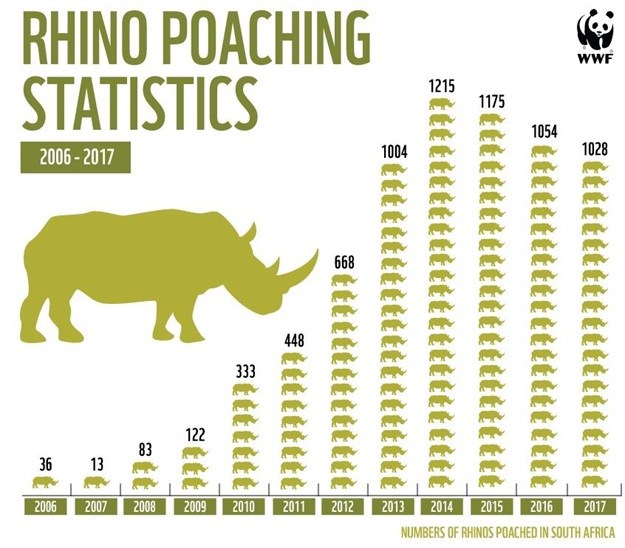
Top stories





Marketing & MediaAds are coming to AI. Does that really have to be such a bad thing?
Ilayaraja Subramanian 11 hours

More news

















Following the announcement, WWF South Africa raised its concerns about the spread of the poaching challenge to other species, and the impact on rural people living around protected areas through exposure to organised crime syndicates.
The geographic shift in poaching across the country continued with greater emphasis on populations outside of the Kruger National Park. Poaching syndicates on the ground are connected to cross-border wildlife trafficking networks and continue to redirect their efforts to where the risk is lower and the benefits greater.
Overall, 2017 also appeared to show a shift to poaching impacts on other species with elephant losses in the Kruger National Park reported to have increased to 67 in 2017 compared to 46 in 2016 - these are important trends to address now, said the WWF SA, to be ahead of the curve and prevent the escalation seen previously for rhino. However, wildlife trafficking is not just about the impacts on rhinos, elephants or our protected areas. Exposure to unwanted criminal elements operating within poaching syndicates is unravelling the social fabric in communities and our responses need to also reflect and address this, the organisation said.
“Wildlife trafficking remains a pervasive threat to rhinos, and increasingly to other species such as elephants and lions which bring tourists and jobs to our important protected areas. These crimes also affect people living around our parks by exposing them to criminals connected to international trafficking syndicates.
“We need ongoing government collaboration between agencies, across borders and with private sector and civil society to stop the damage being done to wildlife and people. At the same time, we need to work to find a way to empower people living around protected areas to benefit legally from wildlife and become invested in their survival,” said Dr Jo Shaw, African rhino lead for WWF International.

Dr Margaret Kinnaird, WWF wildlife practice leader, added: “News of the reduction in numbers of rhinos killed illegally in South Africa for the third consecutive year is encouraging. However, the numbers are still far too high. We must also shine a light on the ongoing struggles facing the people whose safety and livelihoods are threatened by this illicit trade. To address poaching and the destruction it causes to both humans and wildlife, we need to put more effort into stopping the corruption that facilitates the trade and change consumer behaviour particularly in Asia, to stop the demand for illegal wildlife products such as rhino horn.”